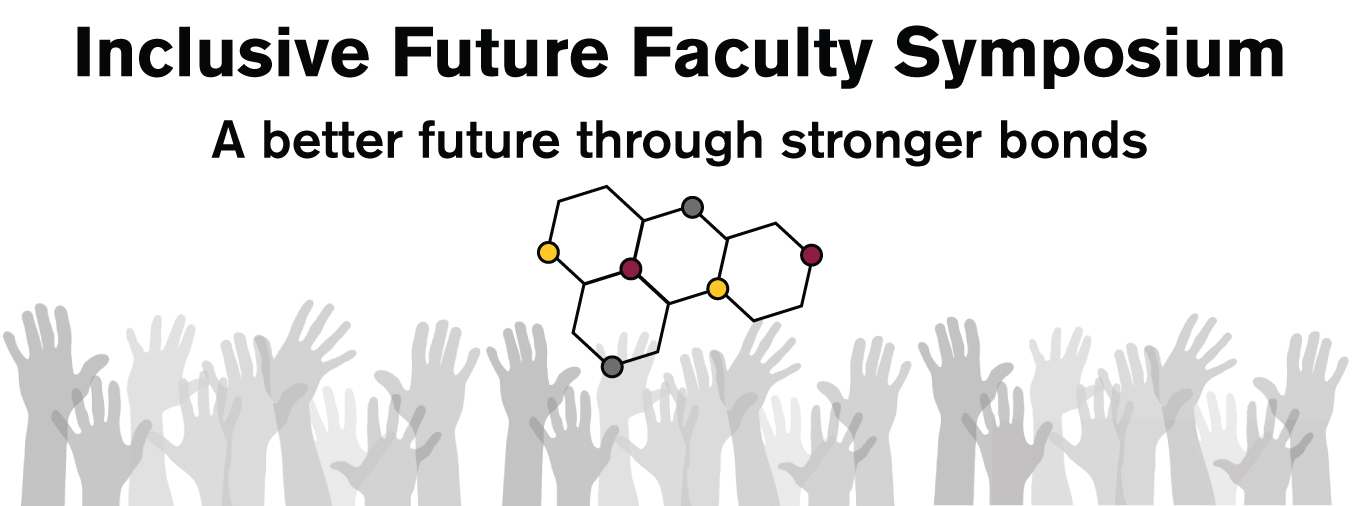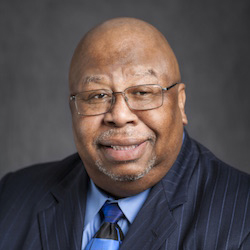Monday March 7 - Tuesday March 8, 2022
School of Molecular Sciences at Arizona State University
“If we pride ourselves as chemists in Justice, Equity, Diversity, and Inclusion in addition to innovation, it is time that we live up to our promise: the future of the next generation of scientists, engineers, and doctors depend on it.”
If you wish to support students of color please attend the event and click on the register button above. If you are a researcher (undergrad, grad, postdoc, or research scientist) of color who would like to present a poster please register AND submit an abstract to [email protected].
The Symposium
- Aims to promote, encourage, and prepare underrepresented scholars in the chemical sciences for careers in academia
- Provides a community and faculty peer cohort to mentor and sponsor underrepresented students as they move forward with their careers
- Amplifies the research and personal stories of underrepresented students
- Allows ASU and other college/universities the chance to meet and recruit promising future faculty candidates
- Connects the scientific community to openly discuss better ways to recognize bias, to be an ally, and promote students and faculty of color in academia
Symposium Participation
- All faculty, staff, and students from academic institutions are welcome to attend and participate
- Students can participate by attending career workshops, meeting faculty from different schools, presenting a poster, or applying to present a talk
- Faculty can participate by listening to students' research and personal stories, contributing to career workshops, or advising/mentoring/sponsoring students in the faculty application process
- There is no symposium fee to students or faculty, registration is free!
- Students and faculty should click the "Register Now" button to register. If you are a student presenter you will be asked to submit a CV, an abstract of your research, and a TOC image in ONE pdf file.
Symposium Schedule
Day one features a keynote address by Dr. Isiah Warner, an expert in promoting diversity in STEM. Participants will connect through networking activities and games, followed by poster presentations and a mixer where participants will connect with faculty from different institutions. Day two features invited participant short talks followed by career workshops on navigating the unique issues students may face in relation to race, gender, and intersectionality in a working environment. The symposium ends with a brainstorming session.
| Day 1- March 7, 2022 | Day 2- March 8, 2022 | ||||||||||||||||||||||||||||||||||||||||||
|---|---|---|---|---|---|---|---|---|---|---|---|---|---|---|---|---|---|---|---|---|---|---|---|---|---|---|---|---|---|---|---|---|---|---|---|---|---|---|---|---|---|---|---|
*All times listed on Mountain Standard Time (MST) |
|
Keynote Speaker
Isiah M. Warner
Louisiana State University, Baton Rouge, LA
Vice President for Strategic Initiatives
Boyd Professor and Philip W. West Professor Analytical & Environmental Chemistry Howard Hughes Medical Institute Professor
Academic Record:
Ph.D., Analytical Chemistry, University of Washington, 1977;
Non Degree Course Work, Joint Center for Graduate Study, Richland, WA, 1969-73;
B.S., Chemistry (Scholar, Cum Laude), Southern University, 1968;
Valedictorian, Carver High School, Bunkie, LA, 1964
Participating Institutions
-
On Monday afternoon students will have the opportunity to network and receive mentoring from current faculty at a wide range of institutions, including:
Arizona State University
Emory University
Loyola University Arrupe College
Claremont McKenna/Scripps College/Pitzer College
California State University, Bakersfield
California State University, Los Angeles
Duke University
George Mason University
Georgia Institute of Technology
Monmouth University
Purdue University
Santa Clara University
South Mountain Community College, Maricopa County, AZ
State University of New York, Binghamton
University of Arizona
University of Cincinnati
University of Georgia
University of Minnesota, Duluth
University of North Carolina, Chapel Hill
University of Washington
Whitman College
Workshop Leaders
Workshop #1: What is the Job?
Professor Dwight Williams, Kalamazoo College
Professor Luis Campos, Columbia University
Workshop #2: How do you apply?
Professor Dianne Xiao, University of Washington, Seattle
Professor Jenny Yang, UC, Irvine
Professor Daniela Arias-Rotondo, Kalamazoo College
Workshop #3: Navigating The Culture of Success
Professor Steve Townsend, Vanderbilt University
Professor Malika Jeffries-El, Boston University
Workshop #4: Building a Community
Dr. Lloyd Munjanja, Diversity Coordinator, University of Illinois, Urbana-Champagne
Dr. Zakiya Wilson-Kennedy, Dean of Diversity, Louisiana State University
Professor Daniela Arias-Rotondo, Kalamazoo College
Professor Dwight Williams, Kalamazoo College
Group Discussion: How do we create an inclusive academic culture?
Professor Laure Kayser, University of Delaware
Professor Nathan Romero, UC San Diego
Professor Kyle Biegasiewicz, Arizona State University
Professor Matt Golder, University of Washington, Seattle
Professor Elizabeth Elacqua, Penn State University
Professor Christine Le, York University
Professor Laura K. G. Ackerman-Biegasiewicz, Arizona State University
Our Mission
To promote, encourage, and prepare underrepresented scholars in the chemical sciences for a career in academia. While significant progress in Justice, Equity, Diversity, and Inclusion (JEDI) has been realized in chemistry over the past several decades, this change is not reflected in the faces of the faculty at many institutions with regard to Black, Indigenous, and People of Color (BIPOC). According to a 2017 National Science Foundation Report only 9% of underrepresented minorities with a doctoral degree in Science and Engineering were employed by academic institutions in the United States. This dearth of BIPOC scientists results in the perpetuation of exclusive practices and education systems. It is imperative for the sake of the next generation of scientists that our institutions of academia remain as inclusive as possible and accurately represent the demographics of the country. Underrepresented faculty can serve as conscientious role models, teachers, and mentors for younger underrepresented students and their perspectives and contributions are critical for providing a foundation for the future of science.
Organizers and Contact
Faculty/Staff Organizers: Laura K. G. Ackerman-Biegasiewicz*, Ian R. Gould*, Kyle Biegasiewicz, Hilairy Hartnett, Abhishek Singharoy, Matthias Heyden, Chad Borges, Jessica Shipley, Jeremy Mills, and Smitha Pillai.
Student Organizers: Dr. Michael Crocker, Mahnoor Ashraf, Sankshay Macha, Kacey Armbruster, Robert Lozanovski Jr., Michelle Leah Basto, Javin Patel, Reem Nsouli, Ernesto Raúl López Rodríguez, Zachary Hyliard, and Giselle De La Torre.
If you have questions please reach out to [email protected]
Acknowledgements
Thanks to a generous ASU JEDI SEED Grant obtained in the Spring of 2021, we were able to realize our goal of developing a future faculty symposium specific to the needs of underrepresented students in chemistry.

